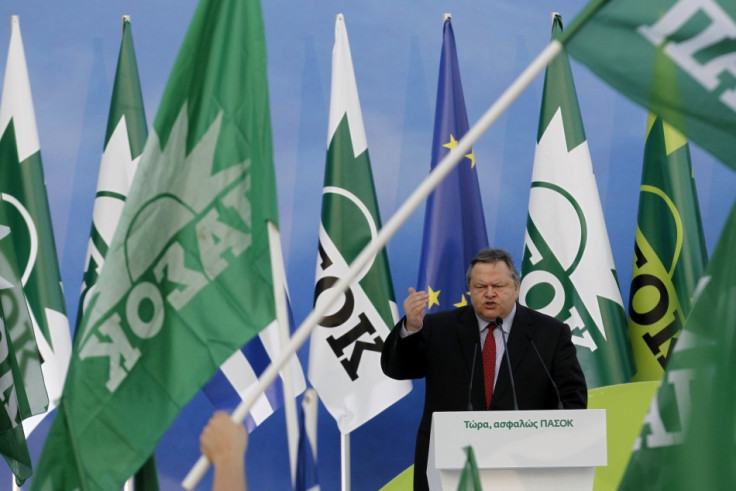Greek Elections: Anti-bailout Syriza and Conservative New Democracy in Close Fight
Greece has been in the news in the past few months for all the wrong reasons. Right from EU bailout, inconclusive parliamentary elections, surge in number of suicides and well the steep decline of the sex industry too.
Greece is one country which is expected to the seal the fate of not only the eurozone crisis but also that of the global economy in the parliamentary elections on Sunday.
Greece will elect its leader mostly from the conservative New Democracy, the socialist Pasok or the anti-bailout party Syriza. Reports from the region suggest that there will be a tight race between Syriza and New Democracy.
Eurozone and Bailout
European leaders are keeping their fingers crossed about the elections and hoping that the Greeks do not elect Syriza which will eventually lead to Greece's exit from the single currency bloc, deepening the eurozone crisis.
The biggest worry among global leaders is that the contagious instability could impact other limping economies of the eurozone like Spain and Italy.
Greek political parties have been trying to capitalise on recent lenient terms of Spanish banks' 100 billion euro bailout by the EU. Analysts also point out that a renegotiation of the bailout terms is possible after the Greece elections which may be a breather for both sides. Central banks all over the world are also bracing for the big day.
Voting Day
The voting begins at 07:00 local time (04:00 GMT) in Greece on Sunday and polling will take place till 19:00 local time. Close to 10 million Greek citizens are eligible to vote.
The first set of official results will be announced a couple of hours after the polling; exit polls will be available immediately after the closing time. Exit polls will fairly indicate the trend.
Parties and Leaders
Syriza - The leader of the party Alexis Tsipras has been tirelessly campaigning against the initiatives put forth by other European leaders, calling them old-fashioned. The ambitious 37-year old promised to create a new future for Greece and for the eurozone.
Syriza party surprisingly secured the second place in the inconclusive parliamentary elections held on 6 May.
If the party comes to power, this will possibly lead to Greece's exit from the Union and make life harder for both Greeks and the Europeans.

New Democracy - During his election campaign, the leader of the party, Antonis Samaras, vowed to resurrect Greece from the current financial crisis while keeping it part of the eurozone.
The party has broadly accepted the bailout terms but Samaras has called for a renegotiation after Spain's bank deal.
"We will exit the crisis; we will not exit the euro. We will not let anyone take us out of Europe," Samaras says in his campaign.
New Democracy is one of the two parties which ruled Greece for decades and global leaders are largely pinning their hopes on Samaras' victory.
If the party comes to power, eurozone and the global economy will be given another chance to emerge from the present instability.

Pasok - The socialist party is another one to rule Greece along with New Democracy for decades. In this election, Pasok has very little to contribute unless a miracle happens.
It may join hands with New Democracy after the elections if needed, since both share the same views on pro-bailout terms. Evangelos Venizelos, the leader of Pasok, has little chances of becoming the leader on his own steam.

Results from the previous inconclusive election held on 6 May
1. New Democracy 19 per cent
2. SYRIZA 17 per cent
3. PASOK 13 per cent
4. Independent Greeks (ANEL) 11 per cent
5. Communist Party KKE 9 per cent
6. Chrysi Avyi (Golden Dawn) 7 per cent
7. Democratic Left (DIMAR) 6 per cent
© Copyright IBTimes 2024. All rights reserved.





